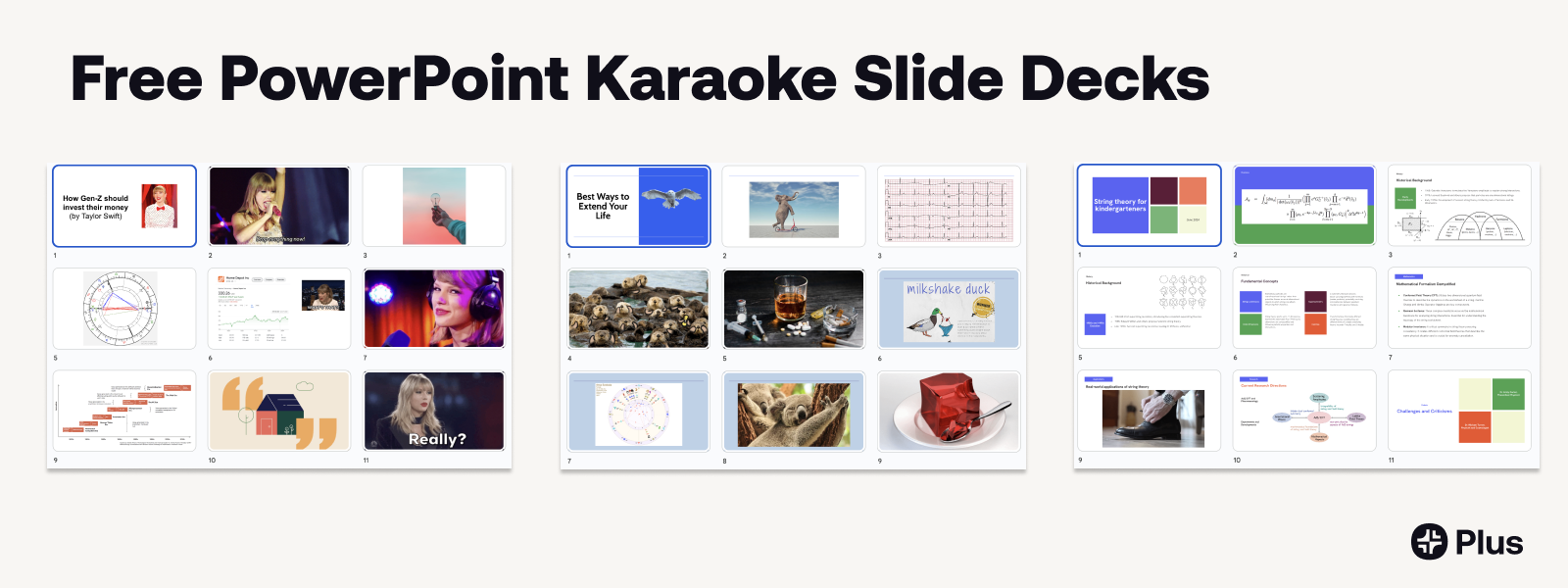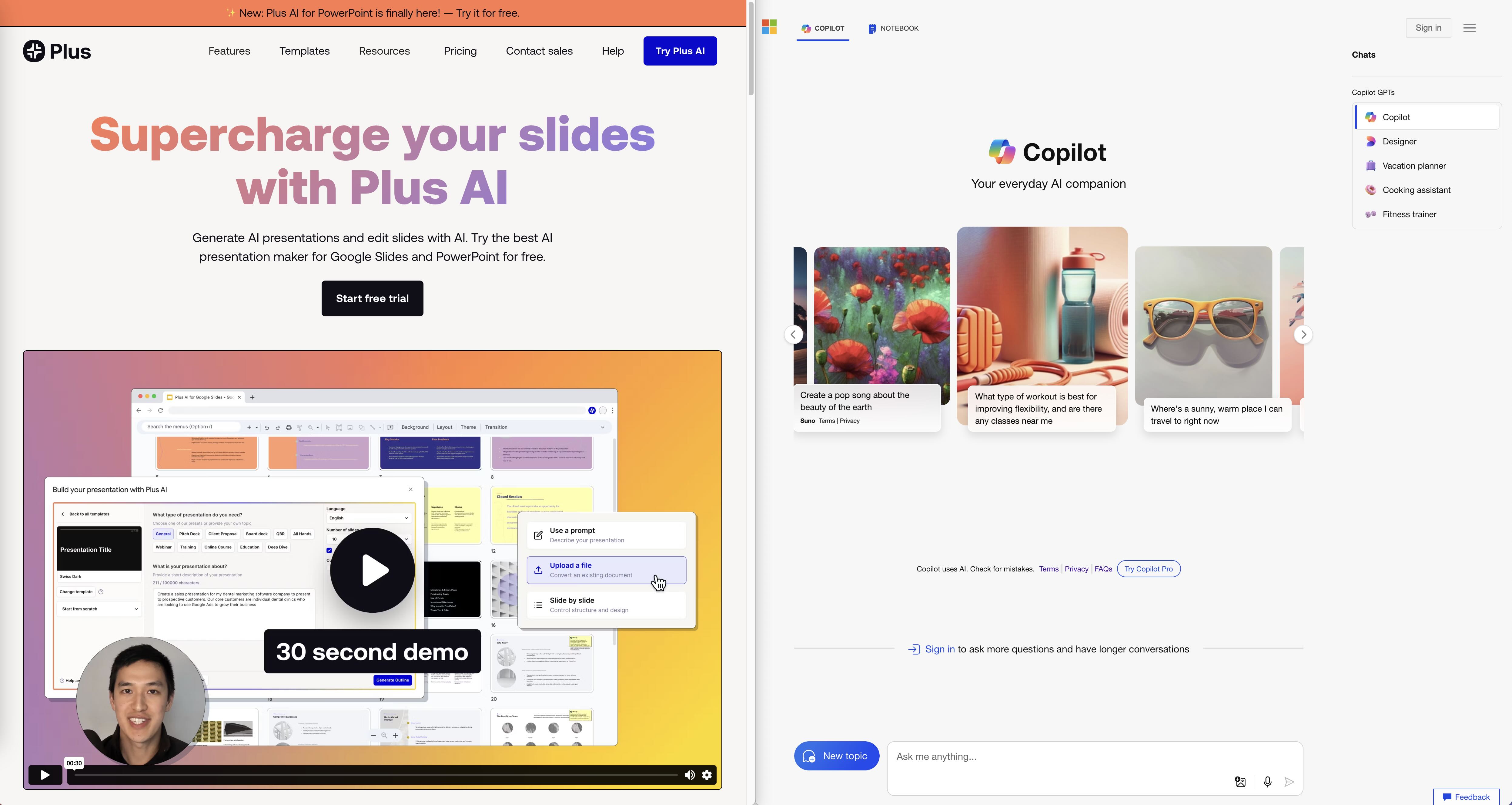The air around AI writing tools is laced with risk. Some content managers encourage using AI to pump out vast quantities of content, while others actively oppose it.
Can you use AI writing tools to replace actual writing? Yes, at least for some types of content. For more nuanced forms of writing, you’ll still need an actual writer.
{toc}
AI is better than the average writer (for at least some type of content)
The problem with the question, “Can you use AI writing tools to replace writers?” is that it doesn’t specify what kind of writing is in question.
Two people reading this question can have wildly different ideas of what constitutes ‘writing’—someone can think ‘writing’ means blog writing, while another can argue that pitches, video scripts, emails, social media posts, presentations, and meeting notes also constitute writing.
Both of them are technically right.
In my opinion, AI writing tools can actually do a pretty decent job of writing:
- Meeting notes
- Product descriptions
- Chatbot conversations
- Some presentation material
- Customer support articles and templated answers to FAQs
- Standardized notification emails — like orders shipped, placed for return, etc.
- Writing simplified versions and summaries of complex documents, podcasts, meetings, etc.
Basically, anything that doesn’t need a human touch can be easily outsourced to AI tools. It just makes sense: Why would I write presentations from scratch when I know Plus AI can easily help me cut that time in half?

Similarly, I’d rather keep my focus on the conversation fully than capture meeting notes. So I use tl;dv. I don’t want to spend two hours repurposing a podcast when ChatGPT can help me capture the key points in less than half the time.
If you search the numbers, you’ll find my experience emulated:
- HubSpot’s latest AI trends for marketers report found 43% of marketers use AI to create content
- Kaltura’s survey found the top areas where marketing teams are using AI are content personalization (47%) and chatbots (47%)
- Retool’s 2024 state of AI research found 36.4% of its participants used AI for their knowledge base, and 33.9% used AI in building support chatbots
With these numbers as the foundation, it shouldn’t be surprising that 40% of respondents in a survey by BMV said that AI writing tools and services will replace junior writers within the next five years.

I’d go as far as to argue that AI writing can replace most standard “how-to” and “what-is” articles. In B2B, a prospect might search for ‘What is a sales funnel?’ In B2C, a potential customer may hunt for ‘What is my skin type?’ ChatGPT or Claude (for example) can do a pretty decent job explaining both topics.
In fact, AI is often better in these types of queries because it feels more like a personalized conversation than generic content. Readers get just the info they need — without the fluff.

But as soon as you raise the stakes, the AI downfall begins. Sure, AI can tell someone what a sales funnel is. But only an excellent writer can explain how to create one with sticky analogies, examples, and expert input.
Take this article I wrote about finding influencers. ChatGPT could’ve easily shared ways to hunt for relevant creator partners. So we switched the angle to share how real-life marketers actually find influencers day-in and day-out. It’s filled with real-world examples, expert advice, and a unique angle that AI can’t replicate.

In summary: The use-case for AI writing tools depreciates as your need for meaningful and technical content increases.
Is writing sacred?
A common argument against AI writing is that people will want stories and articles written by humans. To that say: Lovely thought, but that’s bullshit. Pardon my French.
It might sound bleak, but readers don’t care where the info they consume is coming from, as long as it serves its purpose. Over 60% of participants in Forbes Advisor survey said they’d trust businesses that use artificial intelligence.

The harsh reality is we live in a profit-driven world. If using AI writing tools increases scalability, reduces costs, and improves effectiveness, why wouldn’t businesses adopt it as much as possible? Ultimately, all organizations care about boosting their bottom line.
And this isn’t a bad thing! Everything that was once handmade — your precious coffee mug, a soft rug, that favorite t-shirt — is now mass produced. No one complains that their ceramics and clothes are now more affordable and faster to produce.
Just like handmade items became premium, quality writers who can stitch together a perfect narrative, interview experts, etc., will see increased demand. But that doesn’t mean the market won’t be flooded with AI-written (and perhaps human-edited) content that is more efficient to produce.
I hate saying it, but writing isn’t more sacred than any other job in the world. You can lose your corner of the market just as easily as a developer can lose their job because AI can code faster (and more accurately) than them.
How are your customers using AI?
Your stance on AI writing doesn't matter as much as what your customers think about AI.
If Google is one of your main distribution channels, stay updated about how it’s penalizing AI-generated content. I’m assuming the guidelines will keep getting updated as Google refines its own chatbot, Bard, and AI content becomes more and more commonplace.
If you can get away with minimally editing AI-generated content, still manage to rank, and bring in conversions, ride the AI boat till the cows come home. But stay prepared that Google might change its policies anytime and all your traffic might suffer a landslide — just like these Reddit users:

A sustainable, long-term play is using AI without losing the human touch. For instance, Ryan Robinson uses his own AI writing tool to generate keywords, a detailed outline, and a first draft. Before publishing the article, he edits that draft for tone, voice, examples, facts, etc. This AI writing process saves him six hours.

Similarly, if you’re using social media as a primary distribution channel, it might make sense to use AI to generate post ideas, create a content calendar, and maybe even write a rough first draft. You can infuse it with your voice and experience to produce more social content efficiently and at scale.
It’s also worth noting that many queries will become redundant as AI tools get more popular. For example, I used AI to answer most of my queries while traveling to Europe, like, “Is [dish name] vegetarian?” instead of Googling these questions. I’m not alone: Over 65% of participants of the Forbes survey would use ChatGPT over Google.

While planning your content strategy, think: Which queries might be easier resolved by AI tools than a blog/email sequence/social media post/podcast/etc.? Focus on creating unique, high-quality content for which people wouldn’t go to ChatGPT.
Remember: Your AI writing shouldn’t feel like AI writing (or your readers will run)
Yes, your readers don’t care if you use AI tools to write the content on your website. But they do care about their reading experience. Hear it directly from a reader:

If you use pure AI writing with no human hand to add that magic touch, your readers will know (at least with AI’s current capabilities). Unfortunately, AI writing isn’t wearing an invisibility cloak — it’s very…obvious. It sounds a little robotic, no matter how much you try. You can spot those AI-generated LinkedIn engagement comments, right? That’s because AI can’t be funny, use cultural references, or talk like a friend…yet.
Take these two comments I saw on Geraldine DeRuiter’s blog. I didn’t need to mark the images. You knew which one was unfiltered AI vomit, didn’t you?

One has clearly prompted AI to “write a nice comment about this blog” and another actually read the blog and left a relevant and engaging note. Even if you don’t know what the article is about, you can just smell the AI garbage from a mile away.
And you also need human writers to verify AI content because:
- AI tools have a knack for just making stuff up
- AI content copyrights are still murky
It’s not AI-vs-writers, it’s AI and writers
AI writing tools and writers need to collaborate to create the highest quality content possible. AI can help with keyword generation, content ideation, rough outlines, first draft — but humans have to do the rest.
Data also supports this: A study by Siege Media and Wynter found that content marketers are using AI tools to help with various parts of their strategy. When done right, AI can be your armor to improve efficiency and do more of the tasks you actually enjoy.

Conclusion
To conclude:
1. Yes, you can use 99% of AI content to replace many types of writing like meeting notes, product descriptions, presentation material, etc.
2. Writing isn’t any more special than any other job. It’s not protected by the market. As long as the content is useful and well-written, consumers don’t really care who wrote it.
3. Nuanced content writing (like thought leadership or example-driven articles) can’t be completely outsourced to AI. People can tell the difference in quality for these types of writing. Still, you need to figure out how to use AI tools to be a part of the workflow to increase efficiency, instead of avoiding the software altogether.
In the end, the purpose of AI writing tools is to help you do better work. Weed out the bad stuff and you can stand tall against the dry AI-generated content. It’s your compadre — and not the Brutus kind. Instead of dismissing them entirely or using them as replacements for writers, find a middle ground. Use AI to make you more efficient, not less human.



.webp)

